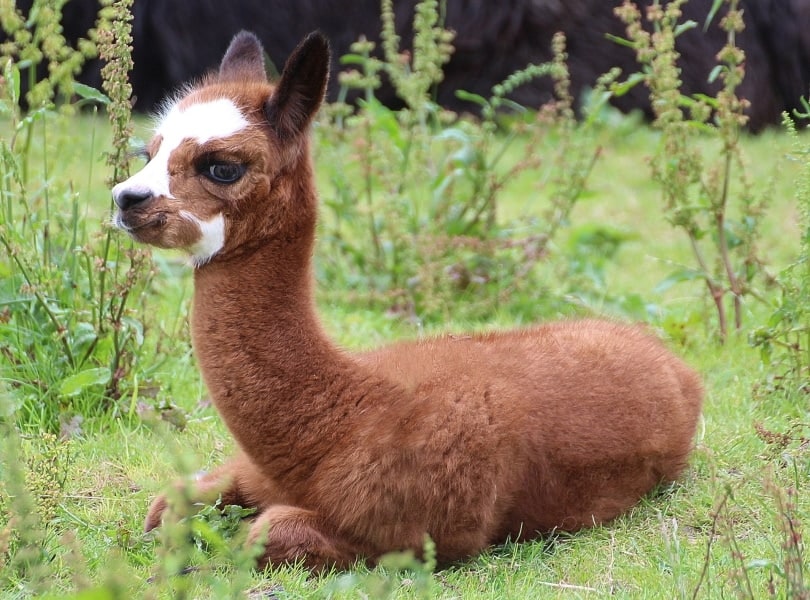Alpaca costs vary according to the quality, standard, and the exact breed or alpaca you buy, but the ongoing care costs will be similar regardless of these factors. Compared to sheep and other livestock, they are expensive, but they are more difficult to come by and typically only give birth to one young at a time, further increasing their scarcity. You can expect to spend $5000 or more.
While this scarcity works against you with the purchase price, it is to your advantage when selling their wool and their meat. They are also cheap to feed and have a lifespan of around 20 years, so they have a long time to repay your initial investment. If you plan to keep them as a pet, the high initial cost of alpacas can make them a prohibitively expensive option.
Read on to find out the ongoing costs and potential revenue streams associated with this unusual livestock variety.
Click to Skip Ahead:

Alpaca Price: One-Time Costs
The most important thing you need to be able to provide an alpaca before bringing one home is space. Typically, one acre of space is considered enough for 6 alpacas. They also need a shelter to protect them when it rains, and this needs to be large enough for your entire herd.
As well as the cost of the animals, land, and shelter, you will also want to pay for a Bovine Viral Diarrhea Test (BVDT) and a fecal test to ensure a new alpaca is healthy and free from parasites. You may also need to pay for registration, depending on the purpose of keeping the animal and whether registration was included in the purchase.
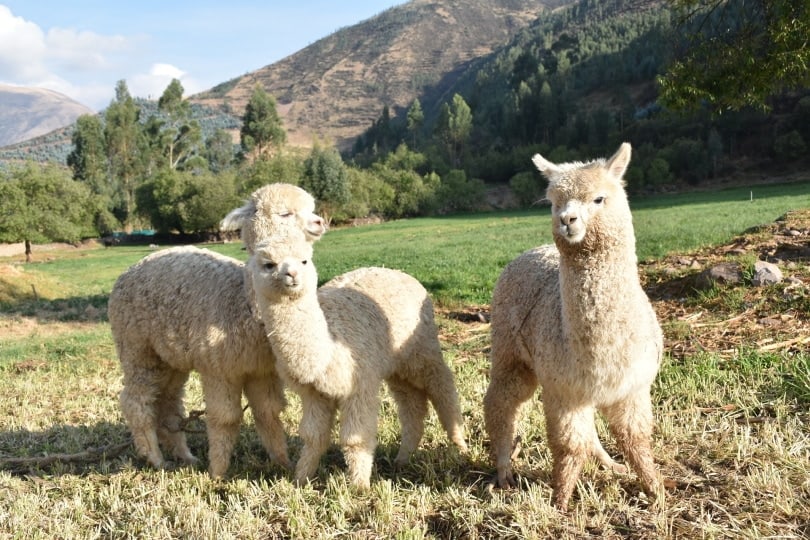
Free
The rarity of alpacas means that it is very unusual to find them for free or in need of adoption. If you do find one that needs rescuing, make sure you get proper health checks done before integrating it into an existing herd. You may still need to pay registration and other fees for the animal.
Adoption
- $500–$600
It is unusual to find alpacas in rescues, although some dedicated alpaca rescue groups do exist. These animals tend to be pet-quality, rather than show- or even hobby-quality, but if you have the land and are looking to give these ruminants a good home, you may be able to find one for a few hundred dollars. Again, having them health checked and screened before taking them home is essential because it helps avoid the spread of disease and parasites around your existing flock.
Breeders
- $250–$20,000
Buying from a breeder is the most expensive way of acquiring an alpaca but costs do vary greatly.
Pet-standard alpacas can cost as little as $250 although they tend to cost $500–$600 and can cost as much as $1,000.
At the other end of the scale, show-quality alpacas have excellent breeding and show the physical characteristics that are required when entering them in the show ring. These have the highest costs, ranging from $5,000 to as much as $20,000 or even more.
Some alpacas are sold as hobby-quality. These are better than pet quality but not quite up to the exacting standards of show-quality animals. They cost between $1,500 and $5,000 each.
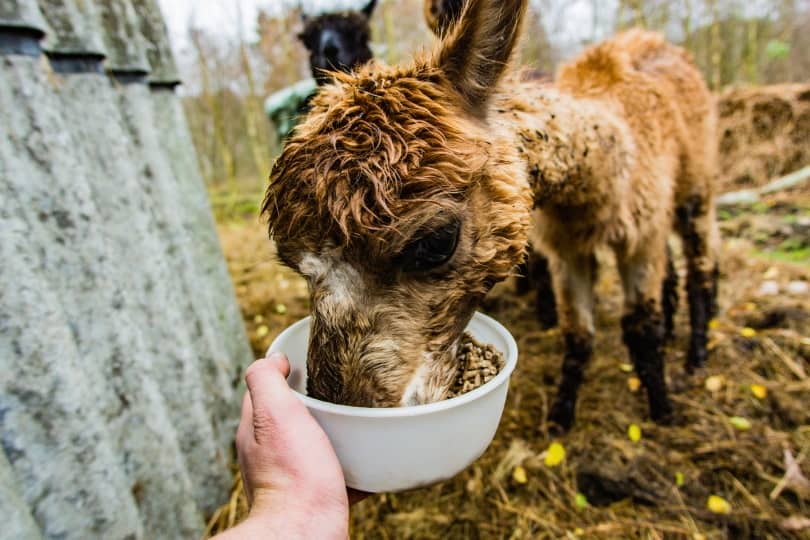
Initial Setup and Supplies
- $500–$3,000
Assuming that you have land already, as well as about 8 square feet of barn space per alpaca, there are still some initial setup costs. Fencing needs to be secure and can represent a major investment of $1,000 to $2,000, along with items like halters and leads, where necessary.
Registration costs between $150 and $200, if it wasn’t included with the purchase.
The Bovine Viral Diarrhea Virus (BVDV) test and fecal test will set you back a further $200, but they should be considered vital.

List of Alpaca Care Supplies and Costs
| Shearing | $150 |
| Vaccinations | $60–$100 |
| Food | $500–$1,000 |
| Straw and Bedding | $150–$300 |
| Vet Checks | $50–$100 |
| Dewormers and Vitamins | $100–$200 |
How Much Does an Alpaca Cost Per Month?
The ongoing costs of caring for an alpaca are lower than with sheep and some other livestock, although the actual cost will depend on various factors. As well as the general health of your animal, the cost can be affected by factors like weather and environmental conditions, food quality, and more.
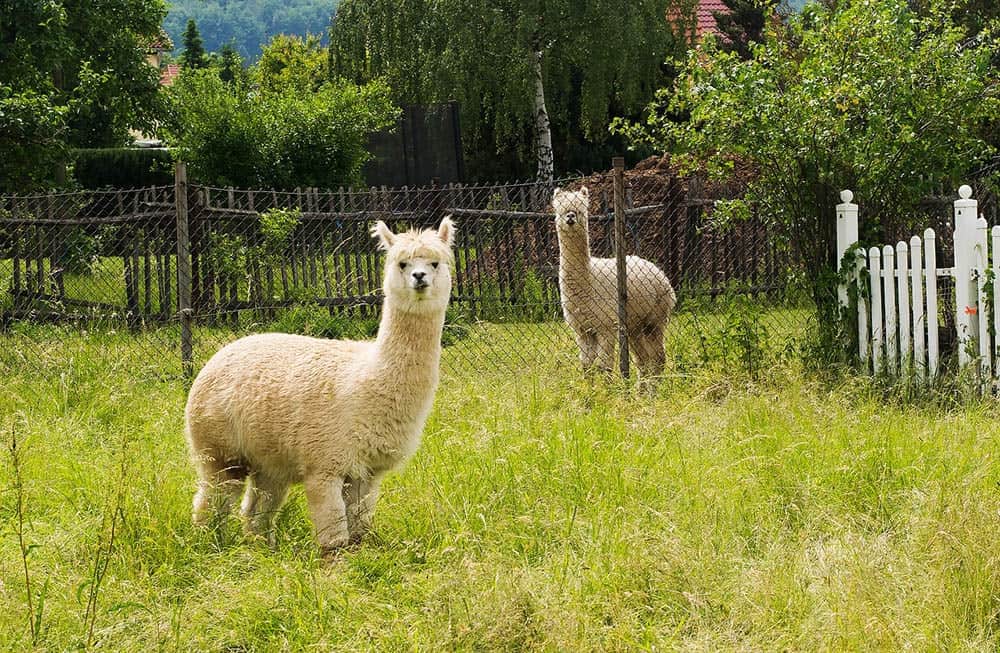
Health Care Costs
- $0–$50 per month
Generally, alpacas are hardy and healthy animals that will live about 20 years. Most months, you will not have any healthcare costs to cover, especially if you keep up to date with vitamins and vaccines, and ensure that they have a good diet and fresh water. If you can find a large animal or livestock vet, the costs might be lower, especially if you have multiple animals.
Food Costs
- $15–$30 per month
Alpacas are grazing animals and they will do well when given plenty of fresh grass. However, this needs to be supplemented with hay and grain to ensure that they are enjoying a nutritionally complete diet. They do also enjoy certain fruits and vegetables, as a treat, but these should not make up a large part of their diet.
Grooming Costs
- $10–$20 per month
Although they are well equipped to deal with most weather conditions, alpacas do need some shearing every year. This is usually done in late spring so that they are cooler during the summer months. If you plan to sell the fleece, ensure that you use a good quality shearer that can strip the fleece in a single cut. Costs vary according to region, shearer experience, and the quality of shearing you want, but expect to pay between $100 and $200 per shear.
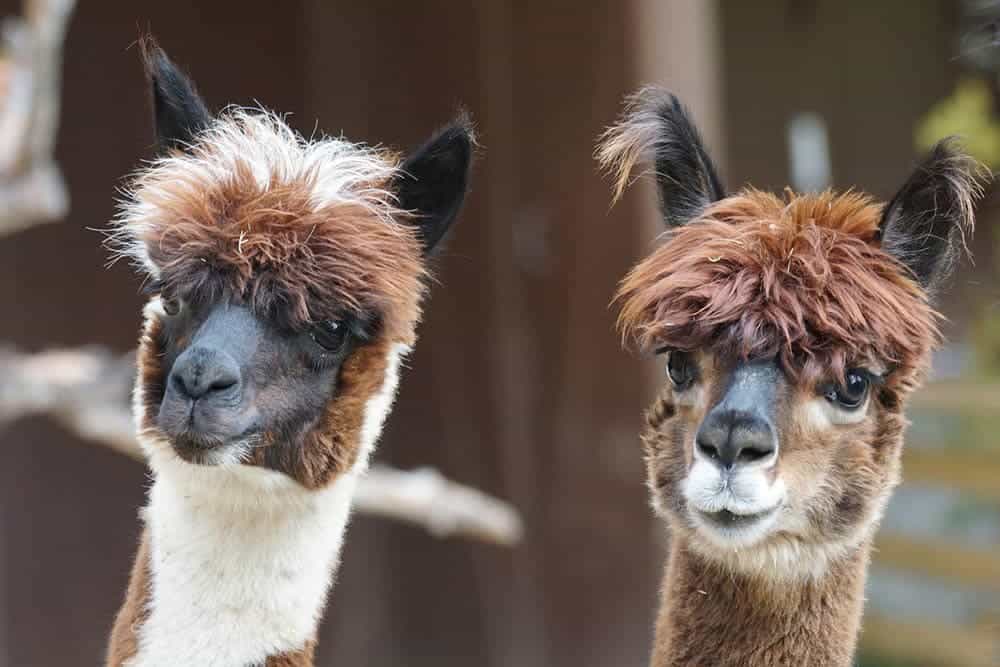
Medications and Vet Visits
- $10–$20 per month
As well as ongoing vaccinations, alpacas need twice yearly worming and they should be given vitamin D injections throughout the winter months, when they won’t be getting any from the sun. This is especially important in young and pregnant animals, but also to all alpacas of all ages. The total cost of this, including needles for giving injections, is between $10 and $20 per month, although it will cost more during winter than summer.
Environment Maintenance Costs
- $5–$10 per month
Alpacas don’t require much in the way of environment maintenance. Ideally, you should be able to rotate pastures to ensure that grass is allowed to grow back, and you may need to pay for occasional repairs to fences and shelters. Otherwise, ongoing costs are for bedding straw and litter box sawdust.
Total Monthly Cost of Owning an Alpaca
- $300–$500 per month
Alpacas are more expensive to buy than sheep but cost less to keep and maintain. They also tend to live longer, which means that the initial cost can be spread over a longer period. However, they produce a lot less offspring, and demand for their goods may not be as high in some areas.
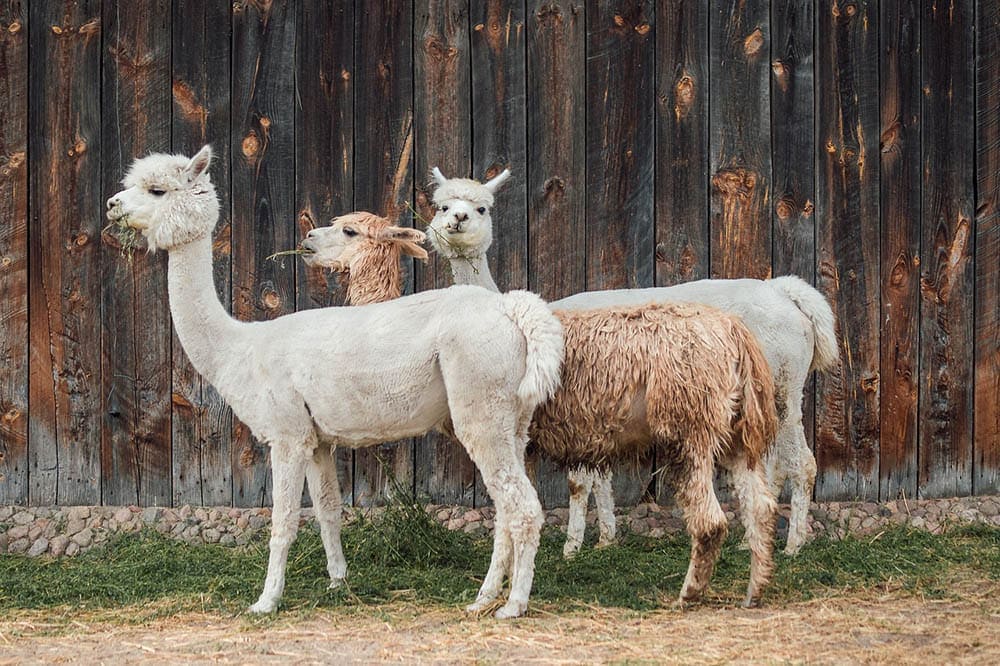

Owning an Alpaca On a Budget
There are some costs that are unavoidable. For example, you shouldn’t cut corners on the quality of feed that you give, and you do need to provide a secure and safe environment. Specialist livestock or pet insurance is available, although this type of animal is usually classified as an exotic animal, which means that policies are difficult to find and cost more than for other pets.
Saving Money on Alpaca Care
If you keep several alpacas, you may be able to get better deals on products like straw, as well as on shearing. It may be possible to eliminate the initial cost of registration by asking the breeder to cover this cost. Some breeders, especially of pet-quality alpacas, do not offer this, however.

Conclusion
Alpacas are large animals, considered exotic animals by insurance companies. They are still a lot less common than sheep, but they are increasing in popularity. While they are an expensive animal to purchase, costing $5,000 or more for a show-quality example, these high initial costs are somewhat offset by lower ongoing maintenance costs and the fact that the animal lives up to 20 years.
Featured Image Credit: Frauke Feind, Pixabay
